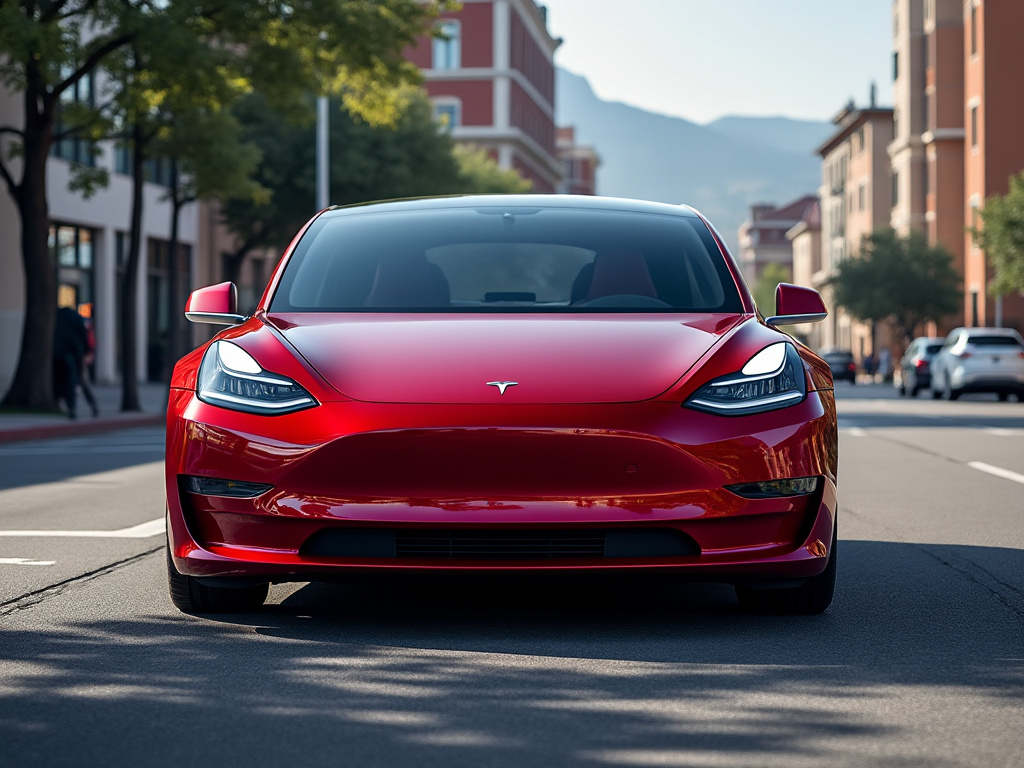
Tesla Sales Decline in Early 2025 Amid Rising Competition and Political Controversy
The electric vehicle maker reports a significant drop in sales across major markets, coinciding with Elon Musk's political affiliations.
Tesla has reported a 13 percent decline in electric vehicle sales during the first quarter of 2025, marking its worst quarterly performance since 2022. The company sold 336,681 vehicles from January to March, which is approximately 50,000 fewer than during the same period last year.
This downturn in sales has occurred against a backdrop of increasing competition in the electric vehicle (EV) market and backlash stemming from CEO Elon Musk's political engagements.
Sales declines were noted across key markets, including the United States, Europe, and China.
Despite the global trend toward increased electric vehicle purchases, Tesla's share in these markets has diminished as competitors have strengthened their positions.
Notably, the Chinese manufacturer BYD is on track to surpass Tesla as the world's leading seller of electric vehicles later this year.
Tesla's share price saw a slight dip of 2 percent before recovering, as investors reacted to the unexpected scale of the sales drop.
Analysts from Wedbush Securities characterized the sales results as a significant setback, with one stating that the report was a "disaster on every metric." The company’s sales performance has faced scrutiny, with predictions made by Musk last year estimating a growth of 20 to 30 percent in 2025, alongside plans to introduce a more affordable vehicle model.
In Europe, Tesla's sales in markets such as France and Sweden have declined for three consecutive months, reflecting a continued struggle for market share.
To combat this, the company launched a refreshed Model Y featuring updated design elements and improved interiors, starting in China in late February and subsequently in the US and Europe in March.
The company's sales downturn has also been exacerbated by incidents of vandalism targeting Tesla vehicles and dealerships globally, which some analysts attribute to Musk's political stance.
His recent affiliations with far-right political entities, including support for Germany's AfD party and close ties to former US President Donald Trump, have sparked controversy, potentially impacting brand perception and customer sentiment.
In summary, Tesla's initial sales performance of 2025 reflects broader challenges within the electric vehicle market, as emerging competitors gain traction and external factors influence consumer behavior.
This downturn in sales has occurred against a backdrop of increasing competition in the electric vehicle (EV) market and backlash stemming from CEO Elon Musk's political engagements.
Sales declines were noted across key markets, including the United States, Europe, and China.
Despite the global trend toward increased electric vehicle purchases, Tesla's share in these markets has diminished as competitors have strengthened their positions.
Notably, the Chinese manufacturer BYD is on track to surpass Tesla as the world's leading seller of electric vehicles later this year.
Tesla's share price saw a slight dip of 2 percent before recovering, as investors reacted to the unexpected scale of the sales drop.
Analysts from Wedbush Securities characterized the sales results as a significant setback, with one stating that the report was a "disaster on every metric." The company’s sales performance has faced scrutiny, with predictions made by Musk last year estimating a growth of 20 to 30 percent in 2025, alongside plans to introduce a more affordable vehicle model.
In Europe, Tesla's sales in markets such as France and Sweden have declined for three consecutive months, reflecting a continued struggle for market share.
To combat this, the company launched a refreshed Model Y featuring updated design elements and improved interiors, starting in China in late February and subsequently in the US and Europe in March.
The company's sales downturn has also been exacerbated by incidents of vandalism targeting Tesla vehicles and dealerships globally, which some analysts attribute to Musk's political stance.
His recent affiliations with far-right political entities, including support for Germany's AfD party and close ties to former US President Donald Trump, have sparked controversy, potentially impacting brand perception and customer sentiment.
In summary, Tesla's initial sales performance of 2025 reflects broader challenges within the electric vehicle market, as emerging competitors gain traction and external factors influence consumer behavior.
AI Disclaimer: An advanced artificial intelligence (AI) system generated the content of this page on its own. This innovative technology conducts extensive research from a variety of reliable sources, performs rigorous fact-checking and verification, cleans up and balances biased or manipulated content, and presents a minimal factual summary that is just enough yet essential for you to function as an informed and educated citizen. Please keep in mind, however, that this system is an evolving technology, and as a result, the article may contain accidental inaccuracies or errors. We urge you to help us improve our site by reporting any inaccuracies you find using the "Contact Us" link at the bottom of this page. Your helpful feedback helps us improve our system and deliver more precise content. When you find an article of interest here, please look for the full and extensive coverage of this topic in traditional news sources, as they are written by professional journalists that we try to support, not replace. We appreciate your understanding and assistance.











